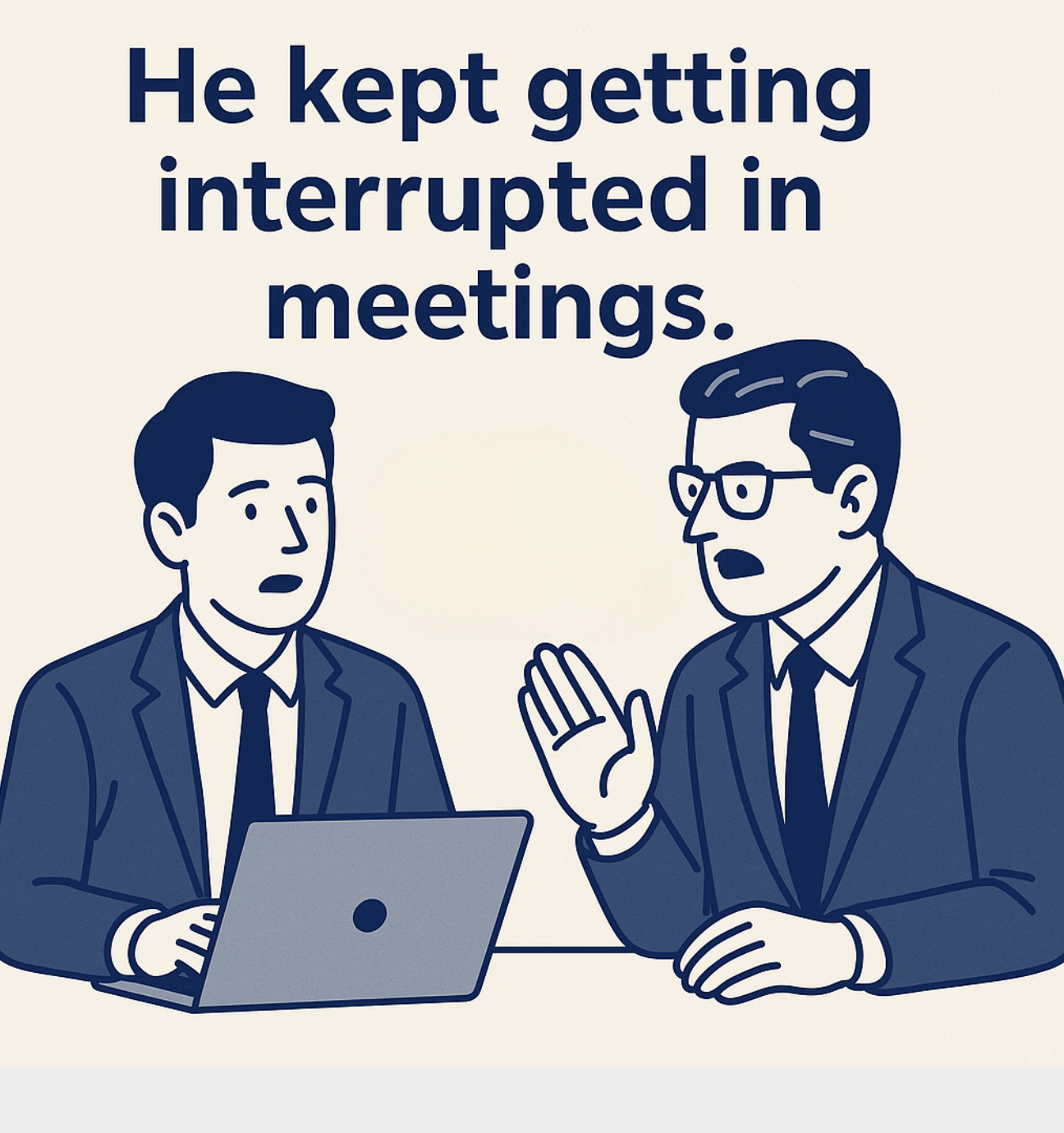Carlos (not his real name) is a brilliant software developer working at a high-level international tech company. He speaks English fluently. But in meetings, he kept getting interrupted — usually by the same person.
It wasn’t that his ideas weren’t strong. In fact, they were great. But his timing was off — just enough that someone else would jump in before he could finish a thought.

He came to me for accent coaching, but it quickly became clear that pronunciation wasn’t the issue. What he needed was a fast, reliable way to hold the floor — especially in the moments right after someone tried to take it.
Because Carlos wasn’t a native speaker, he didn’t have a quick phrase at the ready — something like “I know, but…” or “But Steve—” that a native speaker might throw out reflexively. Once we gave him one — and practiced using it in real time — everything changed.
We drilled three short lines:
- “But Steve—”
- “I know, but Steve—”
- “Steve, you had your chance to speak. Can I say something now?”
Not aggressively — just clearly and without hesitation. We practiced them like lines in a scene, with breath and focus, until they were available to him instantly.
That simple shift gave him back control. The next time he used one of these phrases, the chronic interrupter actually stopped — and Carlos got to finish his point. It gave him a second or two to gather his next thought. And that small moment of ownership made a big difference in the flow of his ideas — and in how his colleagues responded.
A few weeks later, Carlos gave me a testimonial. What stood out to him most? That we used acting techniques to solve a real workplace challenge.
Because professional fluency isn’t just about sound — it’s about knowing what to say, and how to say it, when it matters.
Let me know what you’d like to see more of on this blog — pronunciation tips? Workplace speech tools? Stories like this?
Thanks for reading,
– Eric
https://www.linkedin.com/in/eric-thal-b037a81a2/
